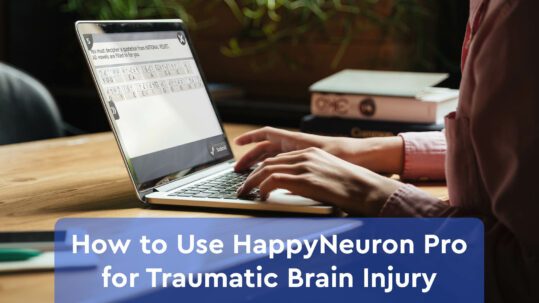TBI and Smartphones
While smartphones get a bad reputation from being disruptive in many situations, smartphones can prove to be useful assistive devices for people with traumatic brain injury (TBI). Here is a list of the 5 key features of smartphones and how these features can help your client living with TBI.
Touchscreen Capabilities
Smartphones today often have touchscreen capabilities. Using touchscreen devices provides immediate feedback to the user and a more natural user interface. For people living with TBI, using small keys can cause frustration as TBI complicates the execution of simple and complex motor skills. Touchscreens can help your clients learn strategies for controlling natural hand movements while engaging with technology.
Voice Activation
Voice activation applications are not only useful for using a smartphone, but are helpful ways to practice speech. This feature can also help clients produce speech for effective device interaction if they have difficulties with fine motor skills. Verbal communication is a key aspect of human interactions. Voice messaging on smartphones and allows for the ease of verbal communication between patients and loved ones.
Memory Assistance
Smartphones offer memory assistance apps that allow patients to keep track of items and help them stay organized. Memory can often be affected by TBI, and is one of the most common cognitive complaints clients with TBI have. By integrating a memory tracking app or note-keeping app, patients with TBI may find strategies to become more independent and avoid forgetting important information.
Health Information Tracking
With the advancement of health tracking abilities via smartphones and smartwatches, monitoring vitals has become easier for individuals. Patients with TBI may have other health conditions that they need to monitor to stay safe. Notifications can be set to alert both the patient and loved ones if vitals fall within certain levels. Additionally, patients with TBI can store information that is shared during a doctor’s appointment to be able to recall it later on. Trackability is key to help with the treatment of brain injuries.
Increased Independence
There are thousands of apps available on app stores. Applications can be used for tasks such as finding recipes, using public transportation, financial management, accessing telepractice health services, and engaging with social media and so much more. Teaching clients with TBI how to not only use their smartphones, but how to find accessible resources that can help them overcome difficulties that they face. The goal is to help them become more independent.
Where’s the Proof?
In a study of 63 people, 29 people with TBI and 33 people without TBI, a survey was completed on the influence smartphones had on mood and community integration. What was found was that smartphone usage was about the same for people with and without TBI. However, people with TBI tended to use their smartphone as an assistive device more than people without TBI. Patients with TBI relied on their phone for support and not just entertainment.
Be a Trendsetter
Another interesting finding was that only 10% of people with TBI had assistance from a clinician on how to use their smartphone. Although it might be a simple tool to use for non-TBI people many participants with TBI reported having difficulty with learning how to use their smartphone. It is important that clinicians do not overlook the use of technology in their client’s everyday lives. Devices, like smartphones, can prove to be useful tools for accomplishing important tasks and living independently.
Conclusion
Often overlooked because they are commonly used, smartphones can prove to be an effective tool for people living with TBI. People with TBI report using their smartphones not only as assistive devices but as other tools to help navigate their everyday needs and challenges. Therapists working with TBI clients may want to consider taking time with their clients to teach them how to use their smartphones, learn strategies for finding resources, and integrating them as a key tool in their lives.
Sources
Wong, D., Sinclair, K., Seabrook, E., McKay, A., & Ponsford, J. (2017). Smartphones as assistive technology following traumatic brain injury: a preliminary study of what helps and what hinders. Disability and Rehabilitation, 39(23), 2387-2394.









